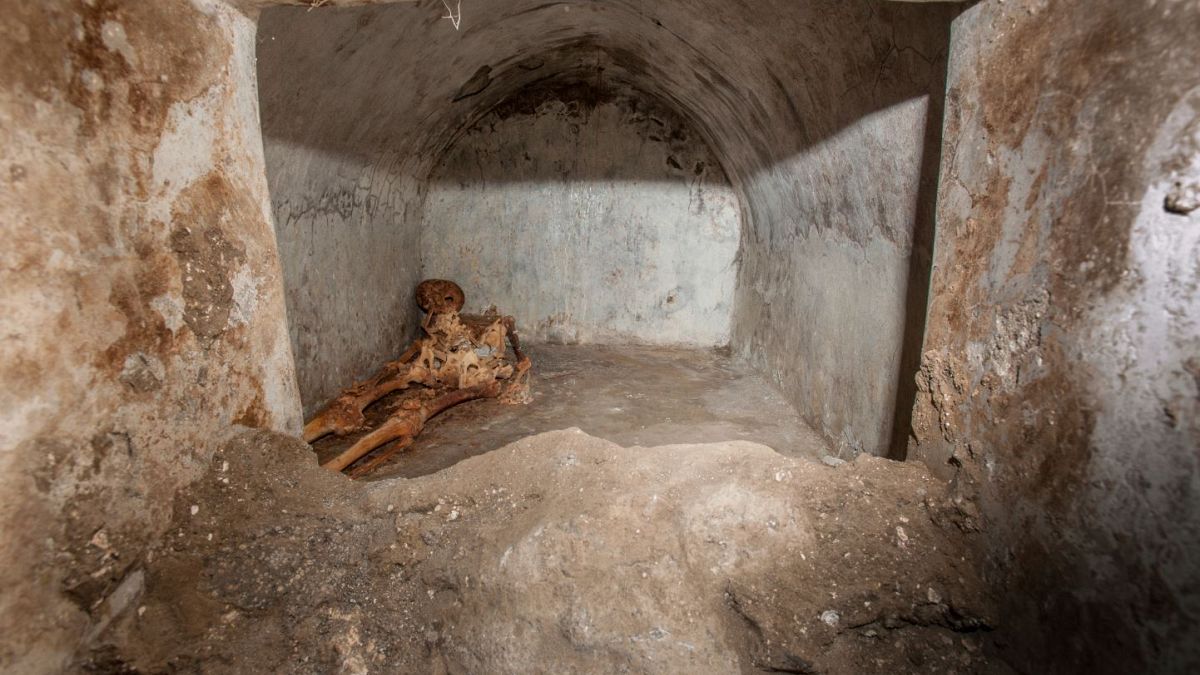Archaeologists say the discovery of a well-preserved skeleton in a Pompeii tomb is the first confirmation that Greek was used in Ancient Rome alongside Latin.
Archaeologists have discovered a remarkably well-preserved skeleton during excavations of a tomb in the ancient city of Pompeii.
The discovery was made in the necropolis of Porta Sarno, an area not yet open to the public that is located in the east of Pompeii’s urban centre.
A skull bearing tufts of white hair and part of an ear, as well as bones and fabric fragments, were found in the tomb.
It has been described as "one of the best-preserved skeletons ever found in the ancient city".
The discovery is especially unusual since most adults were cremated at the time and only small children were buried.
It is hoped that the find will shed light on the cultural life of the city before it was destroyed by a volcanic eruption of Mount Vesuvius in AD 79.
An inscription of the tomb suggested that its owner, a freed slave named Marcus Venerius Secundio, helped organise performances in Greek in Pompeii.
Experts said it was the first confirmation that Greek, the language of culture in the Mediterranean, was used alongside Latin.
Gabriel Zuchtriegel, director of the Archaeological Park of Pompeii, said that Greek performances in Pompeii are evidence of "the lively and open cultural climate" that characterised the ancient city.
Excavations in Pompeii over the years have yielded remarkable discoveries of tombs, chariots, and brilliantly frescoed homes.
"Pompeii never ceases to amaze, and has confirmed her place in a story of redemption, as an international role model, and a place where research and new archaeological excavations are taking place once more," said Italian Minister of Culture, Dario Franceschini.


